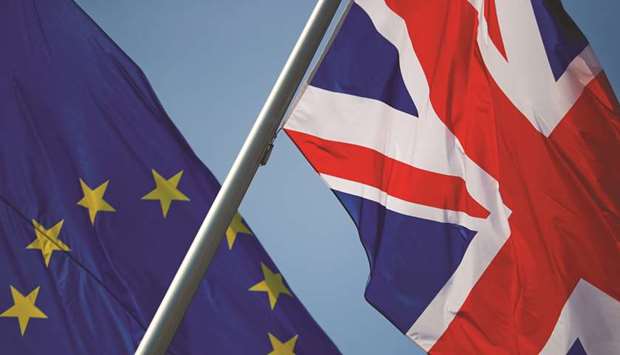Brexit has made the UK uninvestable to many, but from his vantage point in Philadelphia, Britain and its laggard markets have rarely looked better to Jack McIntyre.
The Brandywine Global Investment Management portfolio manager has put more than 14% of his funds’ exposure into sterling over the past two months. He’s among the few with conviction that Britain’s economy is on the road to a rebound – even if any deal with the European Union is far from comprehensive.
“I’m not pounding the table saying the UK is going to be perfect after Brexit, but if the country gets itself out of those onerous EU regulations and unlocks its animal spirit, it will thrive,” said McIntyre, who’s been trading in and out of the pound since the 2016 referendum. “For now, the valuation is attractive and we are playing the odds that something will get done.”
McIntyre’s bold stance puts him in the crosshairs of a debate on how to play Brexit politics as negotiations with Brussels go to the wire. He was joined by strategists at Goldman Sachs Group Inc. Tuesday telling investors to embark on a buying spree of abandoned UK assets on expectations a compromise deal is near.
Officials in Boris Johnson’s government believe a Brexit trade deal could be reached within days as negotiators wrangle over final sticking points: the level competitive playing field for business, EU boats’ access to UK fishing waters, and how any agreement will be enforced.
The pound’s recent strength suggests confidence an accord is at hand. With a deal priced in, options traders are bracing for a drop in the currency over the next week, sending the cost of hedging a decline in sterling to the highest in two months on Monday. Leveraged funds increased their sterling net shorts to levels not seen since the beginning of August, according to the latest data from the Commodity Futures Trading Commission.
McIntyre, by contrast, expects the pound to appreciate to 80 pence per euro over the next 12 to 18 months from about 90 now - a more bullish outlook than any bank forecast recorded by Bloomberg. It’s a position that’s all the more striking because he holds no other Group of 10 currency, preferring emerging markets instead.
Goldman strategists are targeting a level of 87 pence and recommend shorting the euro. Like McIntyre, they remain outliers in a sea of forecasts suggesting few if any gains against the euro next year.
A no-deal scenario – meaning a shift to World Trade Organisation rules – would likely put the UK on course for a double-dip recession, according to Dan Hanson of Bloomberg Economics.
Yet the potential of a “skinny” agreement, light on specific details that gives the UK some room to manoeuvre, is enough to give Lynda Schweitzer at Loomis Sayles & Co confidence to invest in the bonds of British banks. And whatever happens with the EU, there’s potential for Britain to strengthen other trading relationships, according to the co-head of the global fixed income team at the Boston-based firm.
“The UK economy is robust enough to move forward,” Schweitzer said. “It has other trading partners that will try to put together trade agreements. Over the long run, we think the UK would be okay.”
That kind of optimism contrasts with the latest fund manager survey from Bank of America Corp. showing that British stocks are the world’s most unpopular, with a third of respondents positioned to the downside. Since the June 2016 Brexit vote, the UK’s currency is the worst-performing among G-10 nations and its stocks have also lagged global peers.
Many others are waiting to see how a deal pans out before committing themselves.
Oppenheimer & Co’s chief investment strategist John Stoltzfus is confident a trading accord will emerge, and he says he’s ready to bet on UK tech, consumer, pharmaceuticals, and construction and mining industries when it does.
“The UK and the continent have been trading with each other for thousands of years – since someone learned to traverse the English Channel,” he said. “It’s hard to imagine there won’t be a deal.”

European Union and British flags flutter in front of a chancellery in Berlin (file). A no-deal scenario u2013 meaning a shift to World Trade Organisation rules u2013 would likely put the UK on course for a double-dip recession, according to Dan Hanson of Bloomberg Economics.
